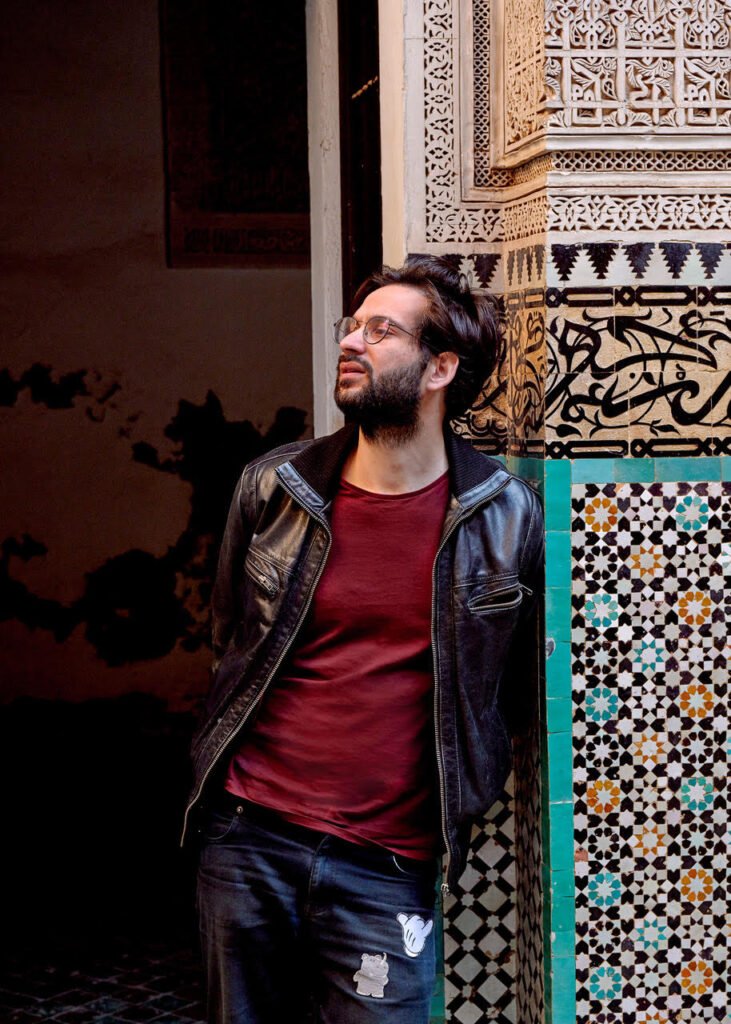Growing up in Fez, the cultural capital of Morocco, you are surrounded by artisanal craftsmanship: every nook and cranny of the ancient medina is crafted by the dedicated, skilled and patient hands of artisans.
That’s how young entrepreneur Ismail Taji sees his hometown. Born and raised in Fez, Ismail grew up in a family of artisans: two of his great-grandmothers were hand embroiderers, his great-grandfather was a silk weaver, and many members of his maternal family were potters.
Continuing his love and passion for the artisan world, Ismail took a rather different academic and professional path: after graduating from high school in Fez, he went to France to study business.
After earning his bachelor’s degree from the Sorbonne in Paris, he enrolled at the Aime Lyon Business School, one of the most prestigious institutions of higher education in France. During his time as a student, the young Moroccan went on an exchange program to Shanghai, China, and then to Arizona in the United States.
He did his first internship in finance in Washington DC and then began his career as a banker in London.
Connecting artisans and technology enthusiasts
But a new career shift was on the horizon when Ismail decided to leave finance and business to pursue his true passion in 2020. “I launched Trame in January 2020, trying to find the intersection of technology, culture, design and art,” Ismail, who is now based in Paris, told Yabiladi.

For him, the art studio is the crossroads between the craftsmanship he witnessed since childhood and the modern tools of technology. His love of innovation is also behind this project.
“In Fez, you can see that there are artisans everywhere and that things are changing slowly. There isn’t much innovation happening,” the entrepreneur said.
“We’re recreating the same things, with the same color palette, the same designs, the same materials and tools. And thinking about how I can bring innovation into this tradition has been a huge source of inspiration for me.”
Ismail Taji
This is what Trame does, embracing technology as a solution to create art, particularly traditional Moroccan art.

Ismail explained that Trame brings together artisans and craft enthusiasts to help create art, décor and design items relevant to the modern era.
3D Printing and Coding
The way Trame helps creators and artisans is by finding digital solutions and tools to create works of art: “For example, when creating a tapestry, we collaborate with a coder, using coding as an artistic medium. Technology also helps in manufacturing. For example, if we create a 3D printed clay product, this is considered digital manufacturing.”
The studio will not only bring together artisans, digital artists and technical experts, but will also develop concepts and prototypes, publish collections, photograph, carry out communication campaigns and organize events to present and sell these artworks.
Whatever the medium or tool used to innovate craftsmanship, innovation is essential, Ismail argues. But sometimes change meets resistance. “Some craftsmen refuse to try new methods or new techniques,” Ismail says.

For him, this is not something new, but rather a human thing: “But when you come with a plan, a vision, and you build trust and respect, people are generally more willing to try something new,” he noted.
In addition to 3D printing, Trame has been utilizing other new technologies such as CNC machining and coding to create its products.
One of Trame’s latest projects is a collaboration with three African-American digital artists who will bring their work into the physical world and exhibit it by the end of the year.

